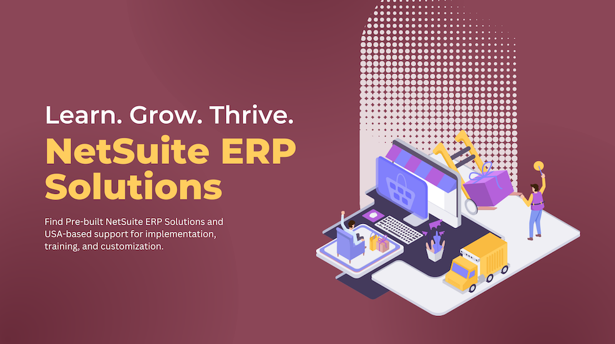Training Your Team for NetSuite: Effective Strategies and Tips

Companies globally have embraced the revolution in business management brought by NetSuite – the leading integrated cloud business software suite. However, the true potential of this platform can only be realized with a well-trained workforce. This blog post will guide you through some practical strategies and tips to train your team effectively for NetSuite.
Understanding NetSuite and Its Importance
NetSuite is a unified business management suite that encompasses ERP (Enterprise Resource Planning), CRM (Customer Relationship Management), and e-commerce functionalities. It’s designed to streamline business processes, improve operational efficiency, and provide real-time visibility into performance metrics.
Training your team to use NetSuite effectively can bring significant advantages, such as:
- Enhanced productivity through automation and streamlining of business processes.
- Improved decision-making due to real-time access to key business metrics.
- Better customer service and relationships through integrated CRM functionalities.
- Reduced IT costs and complexity, given that NetSuite is a cloud-based solution.
Identifying Your Training Needs
Before you jump into the training, it’s crucial to identify your team’s training needs. Each organization, department, and even individual may have different requirements.
- Assessing Current Skills: Analyze your team’s current skills and knowledge regarding NetSuite. This can be done through surveys, interviews, or tests.
- Identifying the Gap: Identify what skills and knowledge are required to perform the tasks effectively using NetSuite and compare them with the current skill set to find the gap.
- Prioritizing Training Needs: Based on the gaps identified, prioritize the training needs. You may want to focus first on training for skills that are critical for your business operations.
Developing a Training Plan
Once you’ve identified your training needs, the next step is to develop a comprehensive training plan. Here are some steps to follow:
- Define Training Goals: Clearly define what the training aims to achieve. The goals should be Specific, Measurable, Achievable, Relevant, and Time-bound (SMART).
- Choose the Right Training Method: Depending on your team’s needs, you can opt for instructor-led training, online courses, self-paced learning, or a combination of these methods.
- Develop a Training Schedule: Develop a training schedule that fits your team’s work routine. Make sure to allocate time for practice and queries.
- Prepare Training Materials: Based on the training method chosen, prepare the necessary materials. These could be manuals, online tutorials, or practical exercises.
Implementing the Training Plan
With a robust NetSuite training plan in place, you are now ready to implement it.
- Start with the Basics: It’s essential to start with the basics of NetSuite. Ensure your team understands its functionalities and how to navigate through it.
- Provide Hands-on Training: Provide practical, hands-on training wherever possible. This will help your team learn how to use NetSuite in real-world scenarios.
- Encourage Continuous Learning: Learning should not stop after the initial training. Encourage your team to continue learning and exploring NetSuite’s capabilities.
Evaluating Training Effectiveness
The last step is to evaluate the effectiveness of your training. This can be done by:
- Feedback: Collect feedback from your team about the training. What did they find most helpful? Where can improvements be made?
- Assess Performance: Assess the performance of your team using NetSuite. Have they improved in efficiency and productivity?
- Identify Areas for Further Training: Based on the feedback and performance assessment, identify areas where further training might be needed.
Leveraging NetSuite’s Training Resources
NetSuite provides several resources to aid in your training efforts. These include:
- NetSuite Learning Portal: This online platform provides a wealth of resources, including training videos, webinars, and interactive courses.
- NetSuite User Guides: These detailed guides explain how to use different features of NetSuite.
- NetSuite Certification Programs: NetSuite offers certification programs for different roles and expertise levels. These can be great for validating your team’s skills and knowledge.
Conclusion
Training your team for NetSuite is an investment that can bring significant returns in terms of improved efficiency, productivity, and decision-making. By identifying your training needs, developing a comprehensive training plan, implementing it effectively, and evaluating the results, you can ensure your team is well-equipped to harness the power of NetSuite. Remember, the key to effective training is having a reliable NetSuite partner as well as continuous learning and improvement.
